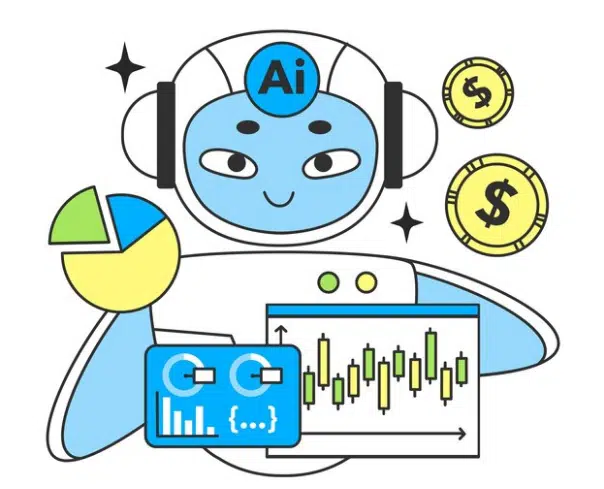In today’s rapidly evolving financial world, artificial intelligence (AI) is revolutionizing the way individuals and organizations handle investment automation and personal finance. The integration of AI technologies into financial systems is reshaping the landscape, providing unprecedented opportunities and efficiencies.
As the world becomes increasingly digital, AI is at the forefront of transforming traditional financial practices, leading to more informed decision-making and streamlined processes. This post will explore the profound effects AI is having on investment strategies and money management, examining how machine learning and advanced algorithms are changing the game for investors and consumers alike.
From personalized financial advice to predictive analytics, AI is enabling more accurate and tailored investment decisions. By automating routine tasks and analyzing vast data sets, AI is also helping investors identify opportunities and mitigate risks more effectively.
The role of AI in modern investment strategies
Artificial intelligence is now a pivotal component in developing and executing modern investment strategies. By analyzing vast amounts of data at unprecedented speeds, AI systems provide insights that human analysts simply cannot match. This technological advantage allows investors to make more accurate predictions about market trends and adjust portfolios with greater precision.
The ability to process and analyze data quickly enables investors to identify patterns and correlations that would otherwise go unnoticed. As a result, AI-powered platforms can offer timely advice, optimize asset allocation, and ultimately enhance returns. This integration of AI into investment processes represents a significant shift from traditional methods, where human intuition and historical data were the primary tools.
Machine learning in portfolio management
Machine learning, a subset of AI, plays a crucial role in refining portfolio management techniques. By employing complex algorithms, machine learning systems can continuously learn and adapt to new information, improving their predictive capabilities over time. These systems can assess risk factors, track market dynamics, and make suggestions for portfolio adjustments.
For example, a machine learning algorithm might analyze past market behavior and economic indicators to foresee potential downturns or upswings, allowing investors to make proactive adjustments. This ability to predict future trends is invaluable in today’s volatile markets, where timely decisions can result in significant financial gains or losses.
AI in algorithmic trading
Algorithmic trading, powered by AI, is revolutionizing the speed and efficiency of transactions in financial markets. AI-powered algorithms can execute trades at lightning speed based on pre-defined criteria and real-time data, thus eliminating human error and emotion from the equation. This offers a strategic advantage, especially in high-frequency trading environments.
By utilizing AI, traders can exploit minute price discrepancies that exist for only fractions of a second. This level of precision and speed is unattainable for human traders and enables higher profitability. Furthermore, AI algorithms can operate around the clock, ensuring that trading opportunities are never missed. The benefits of algorithmic trading extend beyond mere speed; they include reducing transaction costs and improving liquidity.
Transforming personal finance with AI
AI’s influence extends beyond investment automation and aggressively into the realm of personal finance, fundamentally changing how individuals manage their money. Through the use of AI-enabled financial tools, individuals can track expenses, optimize savings, and make more informed financial decisions. Digital advisors, or robo-advisors, are prime examples of AI in personal finance, offering customized advice based on individual financial goals and risk tolerances.
By utilizing AI, these platforms can evaluate vast datasets to provide personalized recommendations, helping consumers to achieve their financial objectives with greater ease and efficiency than traditional advisory services.
Moreover, AI-driven budgeting apps assist users in managing daily finances by automating routine tasks and providing insights into spending patterns. As digital financial tools become more sophisticated, they offer increasingly personalized solutions, empowering individuals to control their financial destiny effectively.
AI in credit scoring and lending
In the realm of credit scoring and lending, AI is introducing transformative changes by evaluating creditworthiness in innovative ways. Traditional credit scoring often relies on a narrow set of criteria, leaving out a considerable portion of the population.
AI, however, can incorporate a broader range of data, including alternative sources such as social media activity and payment history, to assess credit risk more accurately. This inclusive approach is particularly beneficial for those without extensive credit histories, such as young adults or people from underserved communities.
By employing AI algorithms, lenders can reduce default rates and extend credit to a larger demographic more responsibly. Through AI-enhanced lending platforms, financial institutions can offer more competitive rates and terms, tailored to individual borrower profiles. As this technology becomes more widespread, it is likely to increase access to credit and improve the financial outcomes for consumers worldwide.





